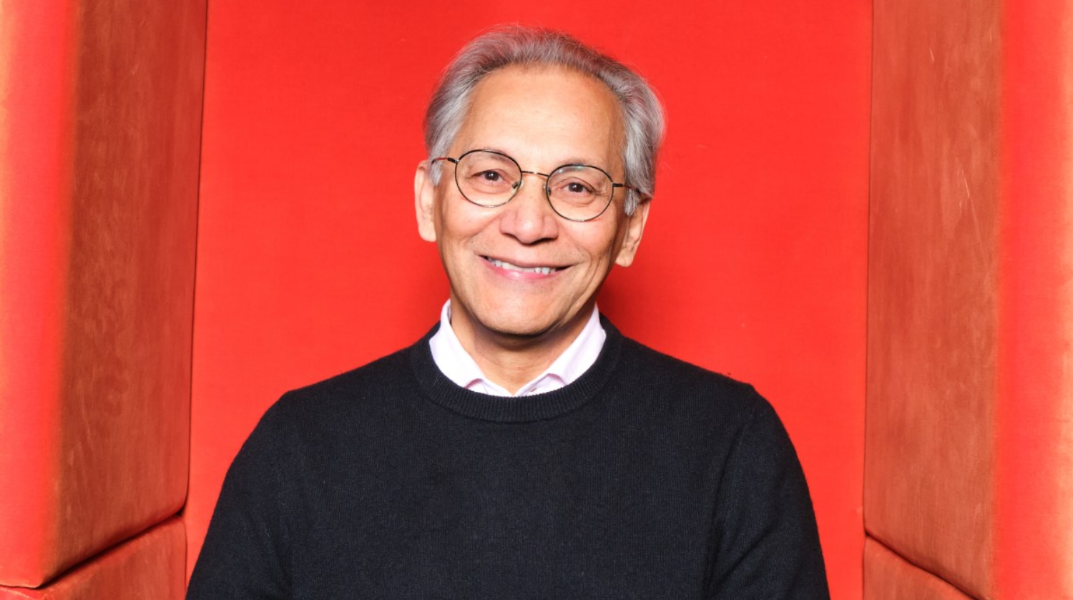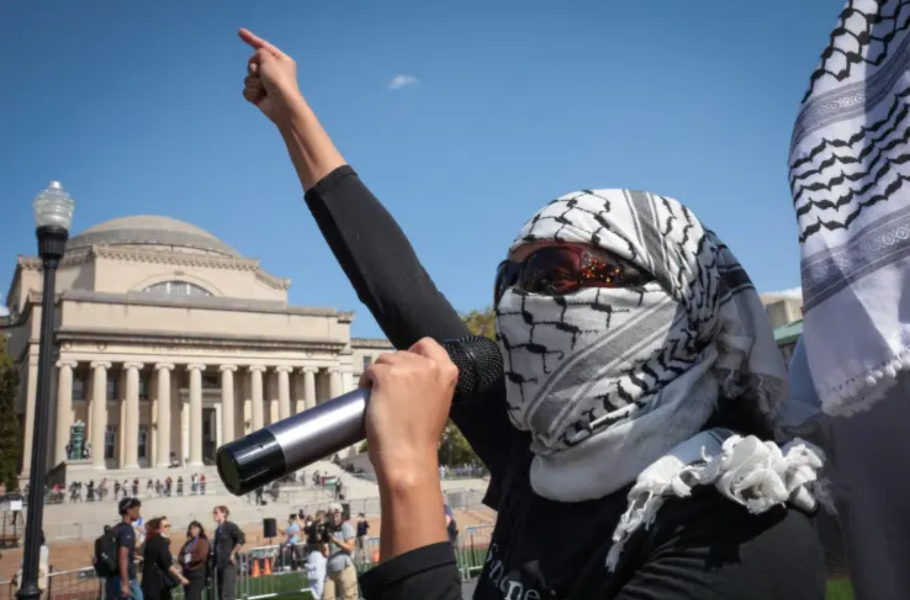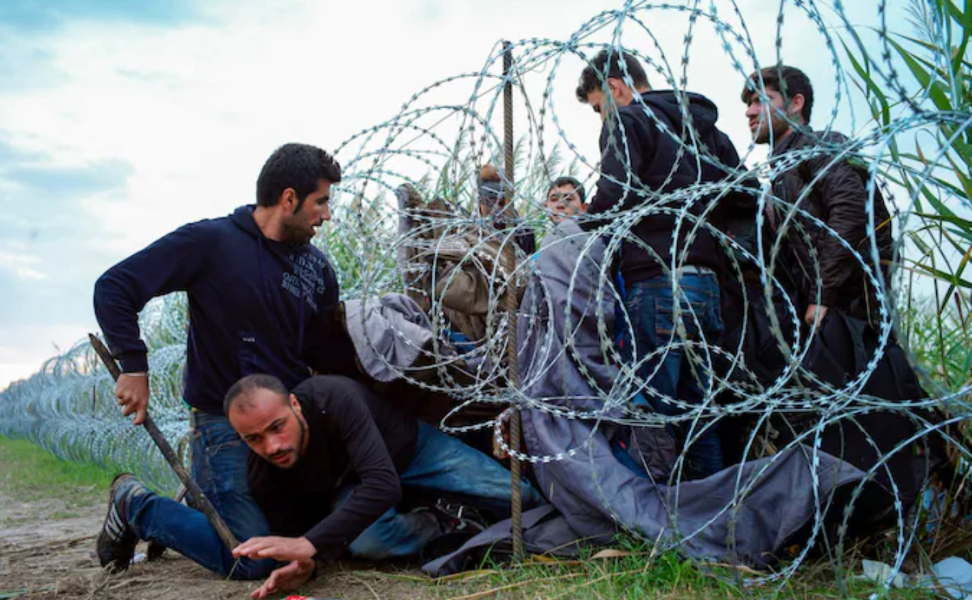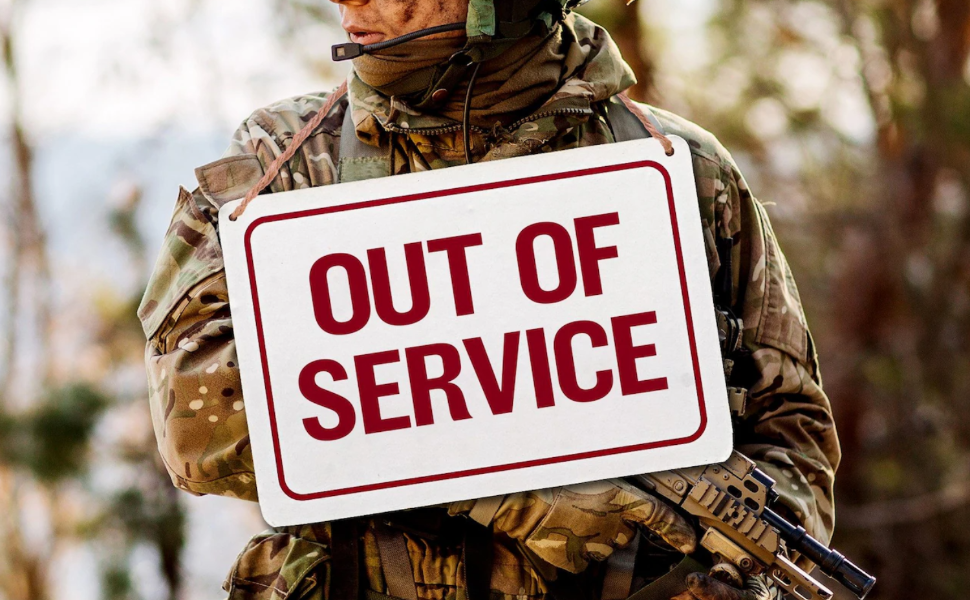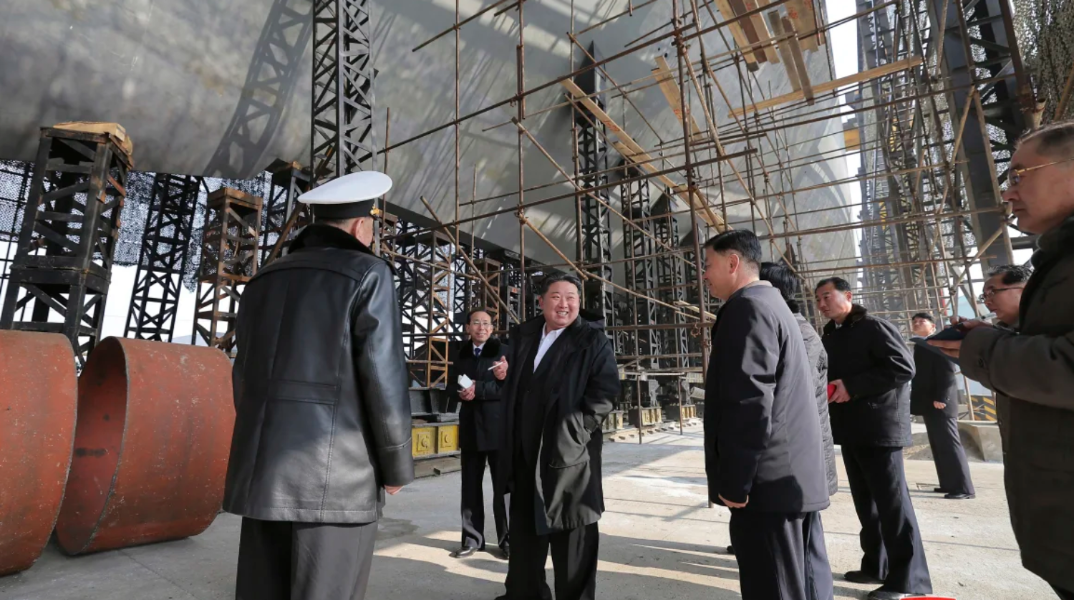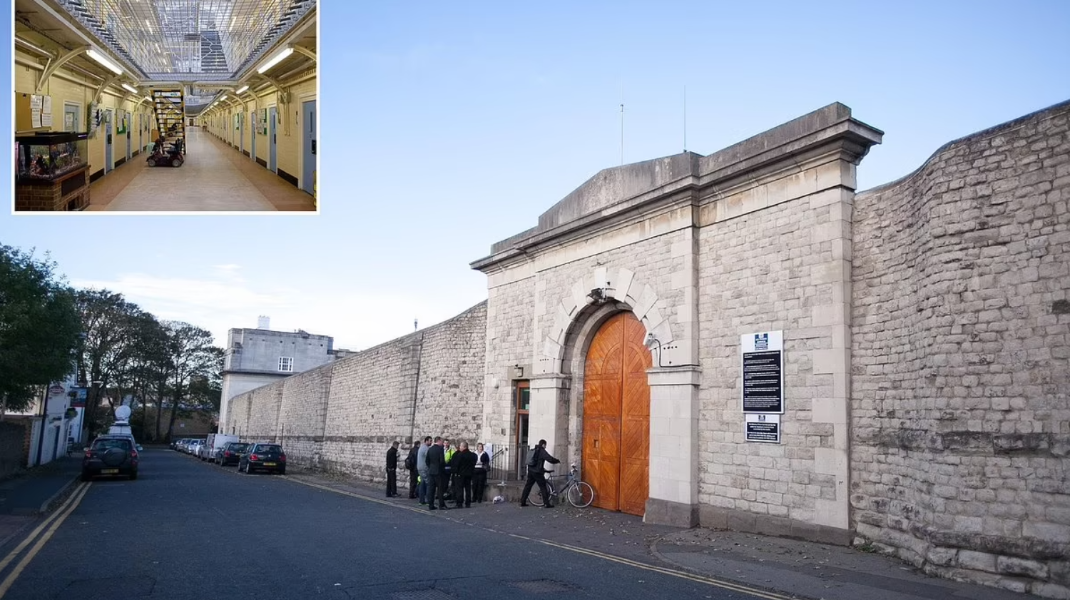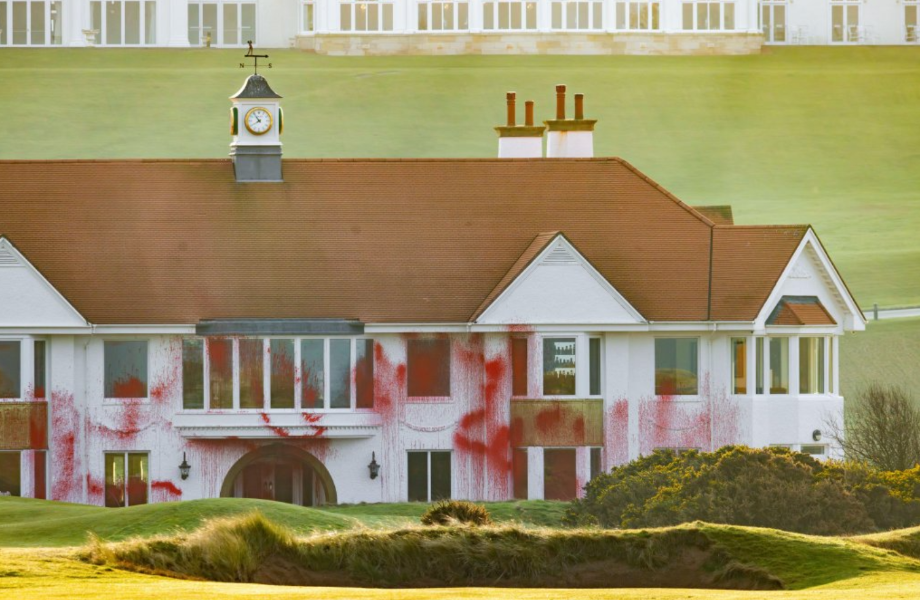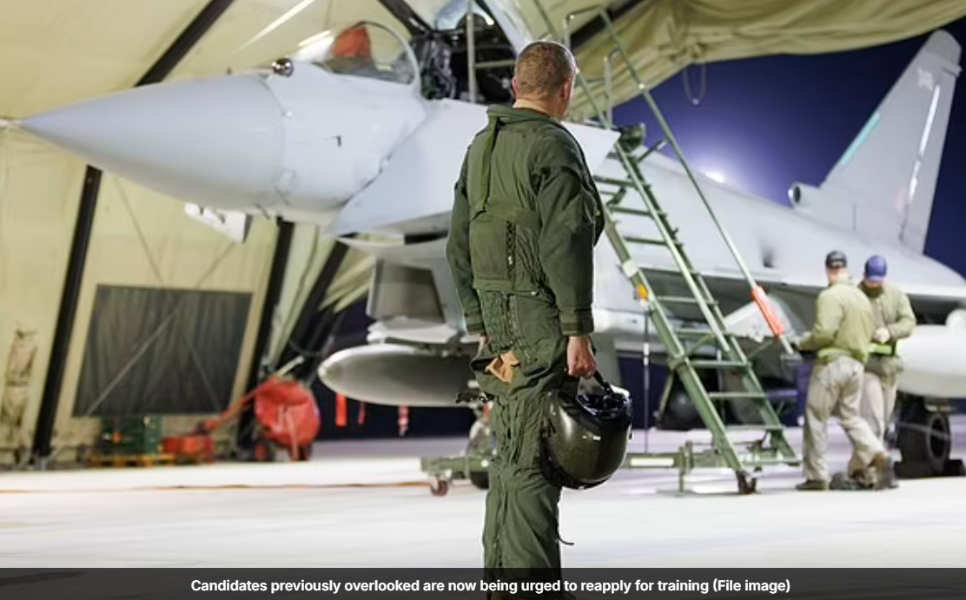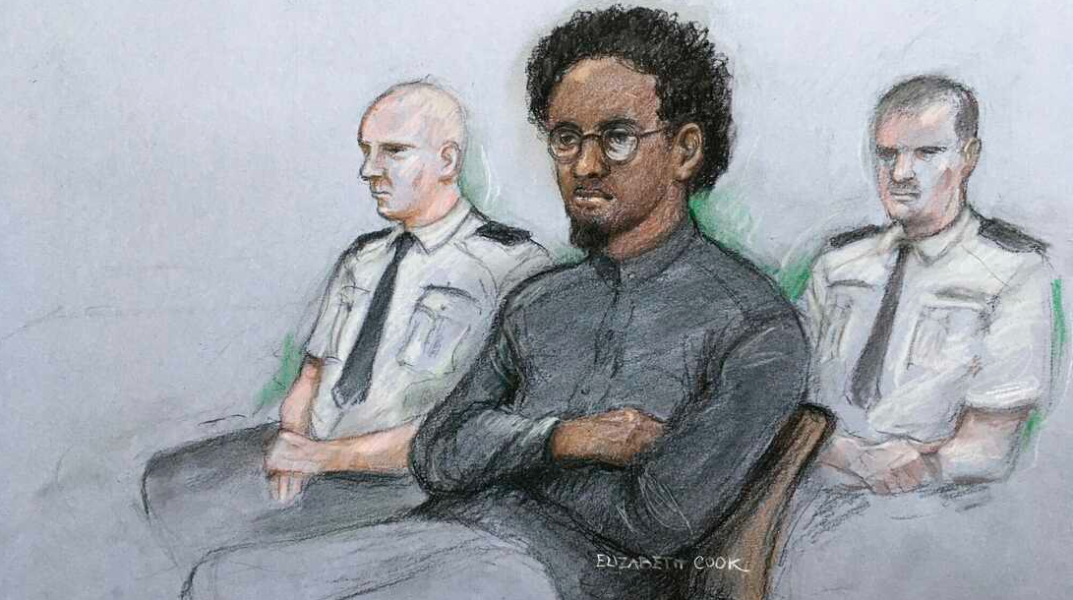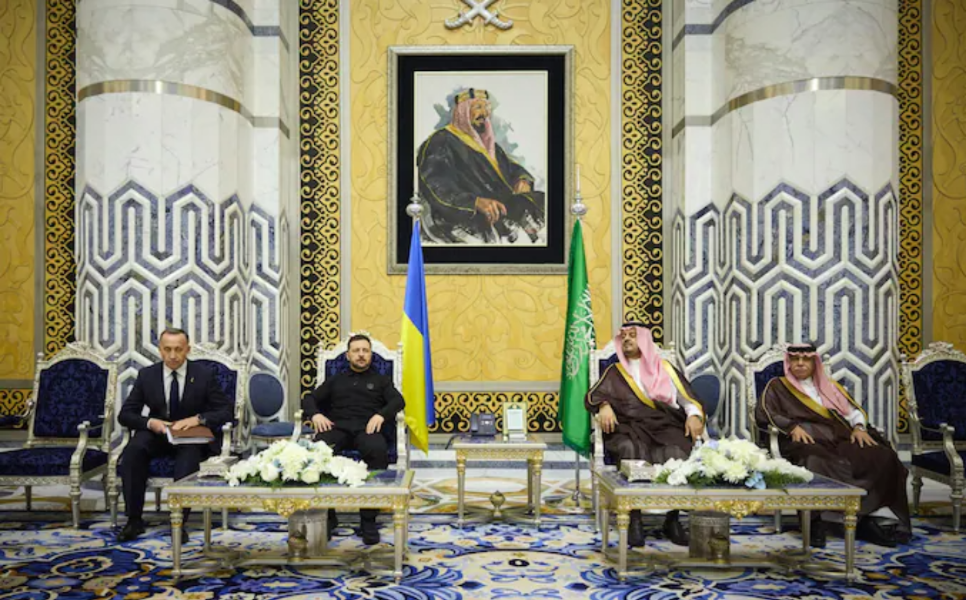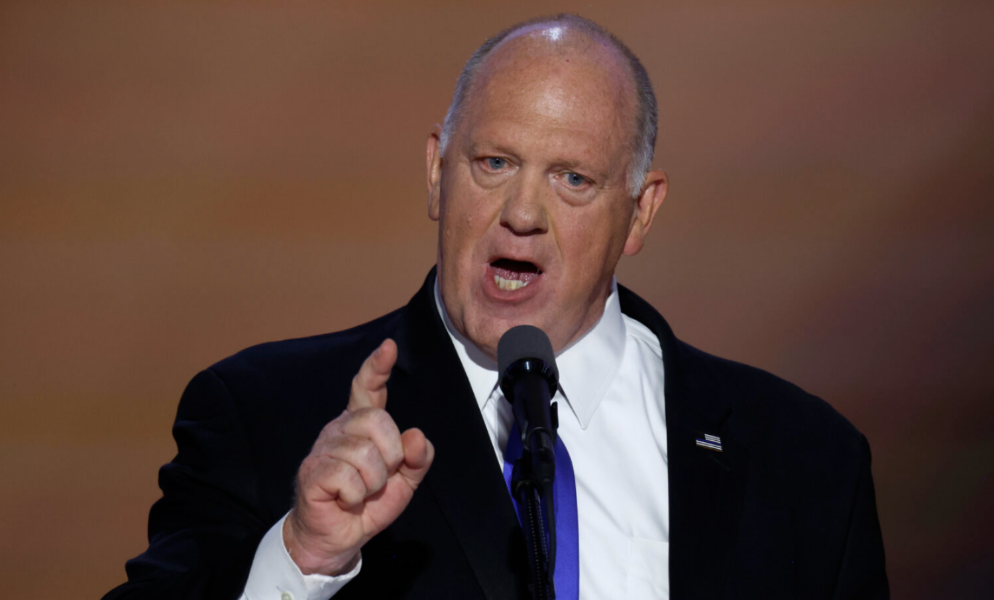-
Posts
10,724 -
Joined
-
Last visited
Content Type
Events
Forums
Downloads
Quizzes
Gallery
Blogs
Everything posted by Social Media
-
A new equality policy introduced by Guy’s and St Thomas’ NHS Trust has ignited debate by allowing transgender employees to use the lavatories and changing rooms of their choice, challenging the stance of Health Secretary Wes Streeting. The policy also mandates that all staff must refer to colleagues using their preferred pronouns, regardless of personal beliefs about gender identity. Further fueling controversy, the guidance instructs managers not to disclose the transgender status of doctors or nurses to patients. Critics argue this could prevent patients from knowing whether they are receiving intimate care from someone of the same biological sex. The policy comes at a time when the NHS is already facing legal challenges on this issue, including from eight nurses in Darlington who objected to sharing a changing room with a biological man identifying as a woman. The Darlington nurses have drafted proposed NHS guidelines, currently under review by Streeting, which would prohibit transgender individuals from accessing women’s showers and changing rooms. The proposal asserts that equality laws do not establish a "hierarchy" of rights and that transgender rights should not be elevated above women’s rights. NHS Fife is also involved in a legal dispute after nurse Sandie Peggie was required to share a changing room with a trans woman. Fiona McAnena, director of campaigns at the women’s rights group Sex Matters, condemned Guy’s and St Thomas’ policy, saying: “With the Darlington nurses and Sandie Peggie cases under way, it’s inexplicable that Guy’s and St Thomas’ NHS Trust has just produced a new policy stating that staff who identify as transgender can access the facilities of the ‘gender’ they identify as. The leadership of Guy’s and St Thomas’ needs to get a grip, pull this new policy, and start again if the trust is to avoid becoming the latest NHS trust to face costly legal action because of reality-denying absurd policies and practices.” The policy, developed by equality officers and LGBT staff members, controversially recognizes "non-binary" identities, which are not legally defined in the UK. It also sets out plans for NHS staff at the trust’s two hospitals to be trained on “non-binary staff and gender non-conforming identities.” The trust has further stated that it will collect data on employees’ self-identified gender rather than their biological sex, directly opposing government directives. The policy document states: “Transgender people are accommodated according to the gender they identify with, rather than sex registered at birth, regardless of where they are on the transition journey.” It also outlines a commitment to providing gender-neutral facilities where possible. Furthermore, the guidance insists that all employees must address others by their chosen pronouns and names at any given time: “On joining the trust, they should always be referred to by their chosen name and gender identity. If the line manager is aware of their trans status, it is inappropriate for them to disclose that information.” The document also emphasizes that training on LGBT+ inclusion, including modules on transgender, non-binary, and gender-nonconforming identities, will be integrated into the trust’s inclusivity program. Critics argue that the policy conflicts with UK law. McAnena stated: “The authors of this policy seem only distantly acquainted with UK law. It doesn’t even mention that sex is a protected characteristic in the Equality Act, but refers repeatedly to ‘non-binary’ identities, which appear nowhere in the law and are irrelevant to healthcare. It’s as absurd as a veterinary hospital writing a policy about cats that identify as dogs.” She further warned that the policy could create issues for patient rights: “The requirement not to disclose the sex of trans-identifying staff risks patients who ask for a female health professional being confronted by a male one who claims to be a woman. Having to use ‘preferred’—that is, wrong-sex—pronouns means nobody will even be able to state the truth if and when this happens.” Additionally, she criticized the policy’s suggestion that pronoun preferences could change at any time, requiring staff to adjust accordingly. Despite the backlash, Guy’s and St Thomas’ NHS Trust defended its policy. A spokesperson for the trust stated: “Transgender staff, like all our staff, deserve to be treated with kindness and respect in line with our Trust values. As an inclusive employer, it is important we ensure everyone is supported regardless of sexual orientation or gender identity.” As the NHS navigates increasing legal disputes over gender identity policies, the debate surrounding trans inclusion in healthcare continues to intensify, with no clear resolution in sight. Based on a report by NYP 2025-03-12
-
The U.S. military is widely recognized as one of the largest contributors to greenhouse gas emissions, yet Defense Secretary Pete Hegseth has made it clear that his department has no intention of addressing climate change. "We do training and warfighting," Hegseth stated in a social media post on Sunday, dismissing the idea that climate concerns should factor into military strategy. Hegseth’s remarks were in response to Pentagon Spokesman John Ullyot, who told CNN that “climate zealotry and other woke chimeras of the Left are not part” of the Defense Department’s mission. Echoing this sentiment, Hegseth further stated in February, “The Defense Department is not in the business of climate change, solving the global thermostat. We’re in the business of deterring and winning wars.” The Trump administration previously downplayed climate change across federal agencies, including the Pentagon, but Hegseth’s stance stands in stark contrast to the department’s past policies and research findings. The U.S. military has been found to produce more annual carbon dioxide emissions than many entire nations. With 128 coastal military installations under threat from rising sea levels, flooding, and increasingly severe hurricanes, the military’s vulnerability to climate change is clear. Recent years have seen tornadoes damage Air Force and Army bases in Ohio and Virginia, and researchers warn that a warming world increases the likelihood of more off-season tornadoes. Harvard Kennedy School Professor Juliette Kayyem criticized Hegseth’s remarks, highlighting the practical consequences of climate change on military readiness. “Hegseth calls it ‘climate change c**p.’ The Pentagon once called it military readiness. Airfields in Oklahoma are damaged from tornadoes; subs in VA from sea water rise; bases in Guam from flooding; NORAD in CO impacted by fires,” Kayyem posted on social media. “It wasn't about wokeness. It never was.” Biden-era Deputy Secretary of Defense Kathleen Hicks previously emphasized the real-world impact of climate-driven disasters on military operations, stating in 2023, “You can't train for combined operations with allies and partners if the training facilities are flooded. You can't run an installation without water because you're in a drought and you can't adequately prepare for future threats if you're occupied with urgent crises.” Climate change has been linked to disruptions in military capabilities, increased conflict risks, and humanitarian crises, including food and water shortages. The Department of Defense emits approximately 51 million metric tons of carbon dioxide equivalent annually. For comparison, a million metric tons is roughly the same mass as a million small cars, according to the Environmental Protection Agency. Though emissions had been declining since 2010 due to reductions in combat operations in Iraq and Afghanistan, efficiency improvements, and renewable energy adoption, the military remains a massive polluter. Most of these emissions come from the buildings and vehicles that sustain military operations. In fiscal year 2016 alone, the Department of Defense consumed around 86 million barrels of fuel for operational purposes, according to Oxford University political scientist Neta C. Crawford. In 2021, Democratic lawmakers noted that the Defense Department was the “single-largest consumer of energy in the U.S. and the world’s single-largest institutional consumer of petroleum,” accounting for “77-to-80 percent of federal energy use.” A 2019 study from Durham and Lancaster University described the U.S. military as “one of the largest climate polluters in history, consuming more liquid fuels and emitting more carbon-dioxide equivalent than most countries.” Despite these findings, Hegseth and other Pentagon officials continue to dismiss climate concerns, maintaining that their sole focus is on military preparedness and warfare. However, with military infrastructure increasingly threatened by extreme weather events, the debate over the role of climate change in defense strategy is far from over. Based on a report by The Independent 2025-03-12
-

Betrayed Warriors: The SAS Veterans Facing Legal Persecution
Social Media replied to Social Media's topic in World News
A number of your troll posts removed @newbee2022 If you have nothing to add to the discussion other than responding with antagonizing deflection then I suggest you move to another topic. A further post removed for comment on moderation from the above poster has also been removed and now earned himself a posting break. -

Updates and events in the War in Ukraine 2025
Social Media replied to cdnvic's topic in The War in Ukraine
Off topic trolling post removed @beautifulthailand99 any other posts in a similar vein will earn you yet another longer posting suspension. -
Ukraine has signaled its willingness to accept a U.S.-proposed 30-day ceasefire with Russia, marking a potential breakthrough in the ongoing war. The announcement came in a joint statement following a high-stakes meeting between U.S. and Ukrainian officials in Saudi Arabia. However, the Kremlin has yet to respond, leaving the future of the proposal uncertain. During the meeting, which lasted more than five hours, the United States agreed to lift its suspension on intelligence sharing with Ukraine and resume weapons shipments, which had been paused for eight days. The shift in U.S. policy followed weeks of pressure on Ukraine, but now, according to Rubio, the focus is on Russia. "If the Russians say no, we will know what the impediment is here," he said. President Donald Trump told reporters at the White House that he hopes Russia will accept the ceasefire proposal. He also extended an invitation to Ukrainian President Volodymyr Zelensky to return to the White House. National Security Adviser Mike Waltz emphasized that Ukraine not only accepted the U.S. offer but also outlined its own principles for a broader peace agreement, including security guarantees it considers essential. Trump made it clear that the ceasefire must be comprehensive, halting all military actions—not just air and missile strikes. Zelensky confirmed in a statement that the agreement would include all front-line engagements. The U.S.-Ukraine statement outlined that while the ceasefire would initially last 30 days, it could be extended “by mutual agreement” between Kyiv and Moscow. The joint statement also highlighted that the U.S. would communicate the proposals discussed with Ukraine to Russian officials. Additionally, Ukraine reaffirmed that European allies must be involved in the peace process. "Before you negotiate, you need to stop shooting at each other. That's what the president wanted to see," Rubio explained. The U.S. delegation at the meeting in Jeddah, Saudi Arabia, was led by Rubio and Waltz, while Ukraine’s delegation was headed by Zelensky’s chief of staff, Andriy Yermak, alongside Ukraine’s foreign and defense ministers. Beyond the ceasefire discussions, the joint statement revealed that the U.S. and Ukraine also agreed to finalize a comprehensive deal for the development of Ukraine’s critical mineral resources as soon as possible. This agreement underscores a broader partnership between the two nations that extends beyond military and diplomatic considerations. With Ukraine now on board, the next move lies with Russia, and the world waits to see if Moscow will seize this opportunity for a temporary halt in hostilities or reject the U.S.-led initiative. Based on a report by AXIOS 2025-03-12
-
Ontario Premier Doug Ford swiftly reversed his decision to impose a 25% surcharge on electricity exports to the United States just hours after President Donald Trump announced new tariffs on Canadian steel and aluminum. Initially introduced as a retaliatory measure against Trump’s trade policies, Ford’s plan was short-lived as economic pressure mounted on both sides of the border. Ford, the conservative leader of Ontario, took to X to explain that he had a “productive conversation” with U.S. Secretary of Commerce Howard Lutnick regarding the economic relationship between Canada and the United States. Following this discussion, Ford agreed to suspend the surcharge, which would have impacted electricity exports to Michigan, New York, and Minnesota. Lutnick has arranged a meeting with Ford and the U.S. Trade Representative in Washington, D.C., on Thursday to discuss revisions to the United States-Mexico-Canada Agreement (USMCA), the trade deal governing economic exchanges between the three North American nations. In light of this development, Ford agreed to back down on his electricity surcharge. His reversal came shortly after Trump ramped up pressure, threatening to double the 25% tariffs on Canadian steel and aluminum, declare a national emergency for areas affected by the surcharge, and impose additional tariffs on Canadian automobiles that could "essentially, permanently shut down the automobile manufacturing business in Canada." Trump also reiterated his desire to bring Canada into the U.S. as its 51st state. Had the electricity surcharge taken effect, Ontario residents could have seen their electrical bills rise by as much as $100 per month, Ford warned. Trump, in response to Ford’s initial move, issued a forceful statement on Truth Social: “They will pay a financial price for this so big that it will be read about in History Books for many years to come!” Ford originally announced the surcharge on Monday as retaliation against Trump’s proposed 25% tariff on Canadian goods and a 10% tariff on energy exports. Although Trump had delayed implementing these tariffs, Ford’s aggressive stance was meant to preemptively counteract the potential economic damage. Ford has consistently opposed Trump’s trade policies, arguing they would disproportionately harm Canada’s already fragile economy. He has even suggested taking more extreme measures, including halting energy exports to the United States entirely. “I can’t, for the life of me, figure out why this guy’s attacking his closest neighbors, allies and friend. A tariff on Canada is a tax on Americans,” Ford said last week during a press conference. Following Ford’s decision to retract the surcharge, Trump indicated that he would likely reconsider his proposed 50% increase on tariffs for Canadian aluminum and steel. “I’m looking at that, but probably so — I’ll let you know about it,” Trump told reporters on Tuesday. The situation underscores the volatility of U.S.-Canada trade relations under Trump’s administration and highlights the delicate balancing act required to navigate cross-border economic policies. Based on a report by The Independent 2025-03-12
-

Updates and events in the War in Ukraine 2025
Social Media replied to cdnvic's topic in The War in Ukraine
Off topic troll post removed @pegman -
In his first interview as BBC chairman, Samir Shah has made it clear that he intends to shake up the corporation. Soft-spoken and unassuming in appearance, the 73-year-old former program maker is determined to bring significant changes, from tackling editorial standards to reforming how the BBC handles misconduct among its stars. Addressing Bias and Improving Editorial Standards Shah acknowledges long-standing criticisms that the BBC leans towards a liberal, metropolitan viewpoint. He attributes this to recruitment patterns, with most journalists coming from arts and humanities backgrounds that skew center-left. To counteract this, he argues that the BBC needs more representation from working-class northern communities to better reflect the diversity of opinion across the UK. The chairman also wants stricter editorial oversight after the recent controversy surrounding a Gaza documentary, which had to be removed from BBC iPlayer due to key editorial oversights. He insists that mistakes should be swiftly acknowledged and corrected, and has called for a full investigation into the commissioning process behind the film. Cracking Down on Star Privileges Another major concern for Shah is the side earnings of BBC presenters, who often make large sums by hosting private events and delivering paid speeches. He wants to end this practice, arguing that BBC employees should be committed to the corporation rather than seeking extra income. His message is blunt: "If they feel underpaid, they are free to leave." In addition, he is taking a tough stance on misconduct within the BBC. Following scandals involving high-profile figures like Russell Brand, Tim Westwood, and Huw Edwards, Shah is pushing for stronger internal accountability. He proposes an independent investigative unit to protect junior staff and swiftly handle misconduct cases. Rethinking the BBC’s Role in Business and Sports Coverage Shah believes the BBC has historically placed too much emphasis on politics at the expense of business coverage. He wants the network to focus more on wealth creation and the role of business, rather than relying on a government-focused perspective. Sports programming could also see changes under his leadership. He suggests revamping *Match of the Day* by reducing highlights and focusing more on in-depth analysis, acknowledging that most fans already see match footage online before the show airs. Reforming BBC Funding and Global Reach One of the biggest challenges facing the BBC is funding. With the traditional license fee under pressure, Shah favors a progressive household levy based on income or council tax bands, rather than the current flat fee. He also supports taxing US streaming giants operating in the UK to reinvest in the British creative industry. Despite declining television audiences, Shah sees an opportunity for the BBC’s global expansion. He wants to double the World Service’s reach to a billion people, particularly in response to increasing Chinese and Russian state-backed media influence. He argues that the West is “losing the battle for truth” and that an independent BBC is crucial to countering global propaganda. Pushing for Long-Term BBC Reform Looking ahead, Shah is advocating for a fundamental change in the BBC’s governance. He believes the Royal Charter, which dictates the corporation’s structure and is renewed every ten years, should be extended to 15 or 20 years to allow for more stability and flexibility in adapting to the rapidly changing media landscape. While his proposed reforms face significant challenges, Shah remains determined to reshape the BBC for the future—though he admits that reviving his struggling football team, Manchester United, might be an even tougher task. Based on a report by The Times 2025-03-11 Related Topics: BBC bosses Questioned by MPs Chief Tim Davie Admits 'Lost Trust' in Gaza Documentary BBC Could Face Counter-Terror Investigation Over Payments to Hamas Official’s Family BBC Admits ‘Serious Flaws’ in Gaza Documentary, Apologizes for Oversight Did BBC Pay Hamas Members To Be In Documentary? BBC Faces More Serious Accusations of Bias in Gaza Hostage Release Coverage BBC Faces Fresh Backlash Over Alleged Gaza Documentary Cover-Up BBC Doc Features Son Of Hamas Leader but Fails to Disclose to Viewers
-
The decisive actions coming from Donald Trump’s administration regarding antisemitism on college campuses have been swift and far-reaching. The latest move—the cancellation of $400 million in federal grants and contracts to Columbia University due to its failure to address antisemitism—demonstrates the administration’s firm stance against hate and discrimination. This followed a State Department decision to revoke the visa of a foreign student involved in what officials described as “Hamas-supporting disruptions.” These measures target radical campus groups, faculty members openly supporting a terrorist organization, and university administrators who have done little to curb the rising hostility toward Jewish students. Reports suggest that other institutions could soon face similar consequences. The Department of Education is currently investigating antisemitic incidents at five universities: Columbia, Northwestern University, Portland State University, the University of California, Berkeley, and the University of Minnesota, Twin Cities. Education Secretary Linda McMahon made the administration’s position clear: “Universities must comply with all federal antidiscrimination laws if they are going to receive federal funding. Columbia has abandoned that obligation to Jewish students studying on its campus.” Additional institutions could soon come under scrutiny, including Yale, which recently received a “D” on an Anti-Defamation League report for incidents involving antisemitic flyers and protests where demonstrators chanted, “Free our prisoners, free them all, Zionism must fall.” The penalties against Columbia were prompted by what officials called an “explosion of antisemitism on American campuses following the Hamas massacre of Israeli civilians on Oct. 7, 2023.” The Civil Rights Act prohibits discrimination based on national origin at federally funded educational institutions, making these crackdowns legally justified. McMahon also hinted that Columbia’s punishment could grow. The university, a top research institution, has approximately $5 billion in federal commitments, with Washington reportedly contributing about a quarter of its annual budget. Columbia, like many other elite universities, likely believed it could allow such hostility to fester without government intervention. The failure of Democrats and the Biden administration to address antisemitism only emboldened these institutions, creating a false sense of impunity. The current administration’s approach contrasts sharply with its predecessor’s. Back in December 2023, House Republicans grilled the presidents of Harvard, Penn, and MIT for failing to protect Jewish students. While many Democrats remained silent or even defended these university leaders, the outrage led to the resignations of the Harvard and Penn presidents, largely due to donor backlash. Yet, more than a year later, explicit support for Hamas and calls for the destruction of Israel continue to spread across campuses. At Barnard College, which is affiliated with Columbia, radicals recently occupied buildings twice and disrupted classes. If history is any indication, such disturbances will only escalate as the weather warms. Trump’s administration is stepping in to stop this growing tide, a stark contrast to the previous government’s inaction. Failing to act against domestic support for Hamas—a group responsible for the massacre of Israeli civilians, including children, and the kidnapping and torture of hostages—effectively condones the surge in antisemitic rhetoric and violence. In some cases, the Biden White House’s public critiques of Israel’s actions in Gaza were nearly indistinguishable from those of Hamas and radical activists. This tacit approval has fueled campus hostility against Jewish students. The open antisemitism seen in New York and other major cities has reached levels not witnessed since the Holocaust. This is not a matter of free speech but rather a dangerous escalation that, if left unchecked, could lead to violence. History has shown that ignoring such hatred only allows it to spread. Trump, often regarded as the most pro-Israel president in U.S. history, has made Jewish safety in America a priority. His nomination of Rep. Elise Stefanik as U.S. ambassador to the United Nations underscores this commitment. Stefanik, who played a pivotal role in exposing university leaders’ inaction on antisemitism, has vowed to confront the UN’s deep-seated hostility toward Israel. “The antisemites at the United Nations better buckle up because I’m coming,” she recently declared. “The university presidents were just a warm-up.” The administration’s crackdown must also include criminal prosecution. Despite radicals setting up tent cities, harassing classmates, breaking into buildings, and refusing to leave, few students faced meaningful consequences. In cities like New York, lenient prosecutors have dropped most charges against these agitators. Trump may ultimately need to consider whether the Department of Justice should intervene in cases involving federal law violations. Additionally, any foreign students involved in such actions must continue to have their visas revoked. Even so, universities cannot evade their responsibility to uphold anti-discrimination policies. Columbia, in response to the federal penalties, recently released a statement pledging to “work with the federal government” and reaffirming its commitment to combating antisemitism and ensuring student safety. However, this response only came after the university faced financial consequences, proving the necessity of Trump’s intervention. Based on a report by NYP 2025-03-11 Related Topics: Trump Border Czar: ICE Will ‘Absolutely’ Deport Legal Immigrants Trump Threatens to Cut Federal Funding Over Campus Protests U.S. State Dept to Use AI to Revoke Visas of Foreign Students with Alleged Ties to Hamas
-
Vladimir Putin has been accused of using migration as a strategic tool in his “hybrid warfare” against the West, effectively turning the movement of people into a political weapon. Experts warn that Russia treats migration like a “tap” that it can turn on and off to pressure European leaders, particularly in relation to their support for Ukraine. Recent investigations have revealed that one of Putin’s agents, Jan Marsalek, played a key role in influencing migration flows into Europe using private military groups. Evidence suggests that Russia actively fuels migration by physically transporting people toward the European Union’s borders, supporting smuggling networks, and fostering instability and violence in regions such as Syria and parts of Africa. Additionally, Russian operatives are accused of spreading misinformation about migration to sow division and disrupt European unity. At the end of last year, Finland closed its final border crossing with Russia after witnessing a dramatic surge in undocumented migrants, mainly from the Middle East and Africa. Finnish Foreign Minister Elina Valtonen stated that there was no doubt Russia was employing migration as a weapon and, in some cases, directly assisting migrants in reaching the border. Other European nations, including Poland, Lithuania, Estonia, and Norway, have also reported suspiciously coordinated migrant influxes from Russia and its allies. Frontex, the EU’s border agency, has observed Russia using migration “as a lever in a larger game of influence and pressure.” This tactic is not new but has become increasingly sophisticated, with Russia and its mercenaries tightening their grip on key migration routes in sub-Saharan Africa and Libya, which serve as major transit points for migrants heading to Europe. Russian mercenary groups have established a strong presence in Mali, Burkina Faso, and critical migration hubs such as the Central African Republic, Sudan, and Libya. Kilian Kleinschmidt, a humanitarian expert, has been warning about the weaponization of migration for years. He recalls discovering in 2019, just before the European elections, that there was a concerted effort to push a new wave of migration from Turkey and Greece toward Northern Europe. “The wrong information was being spread by certain people, who we suspect are Iranian and Russian agent provocateurs,” Kleinschmidt told *The Telegraph*. “They were telling people that Angela Merkel would open the border again.” According to Kleinschmidt, migration is deliberately manipulated to pressure European politics. “You turn on and turn off the tap as you want, and you put European politics under pressure. Migration has become the main theme for the political Right and populists, who use it as a rallying cry. The Russians clearly use that theme to make Europe nervous and influence elections.” Kleinschmidt was hired in 2017 for a reconstruction project in Libya, only to later realize that Marsalek’s true aim was to establish border control operations. At the time, Marsalek was the chief operating officer of Wirecard, Germany’s premier tech company. When Wirecard collapsed in 2020, he fled to Moscow and is now one of Europe’s most wanted fugitives. Unbeknownst to Kleinschmidt, Marsalek had already secretly purchased a Russian private military firm, the RSB Group. His involvement in Libya dates back to 2016 when he facilitated Russian military activity in the country under the pretext of mine-clearing operations for the Libyan Cement Company. These activities took place in territory controlled by General Khalifa Haftar, a warlord with strong Kremlin ties. Marsalek’s influence extended through his Russian “handler,” Stanislav Petlinsky. Together, they met with high-ranking Libyan military officials to secure permission for Russian mercenaries to operate in the country. Their success paved the way for Wagner Group forces to enter Libya in significant numbers in the following years. Antonio Tajani, Italy’s deputy prime minister, has indicated that intelligence reports confirm the presence of Russian mercenaries in North Africa collaborating with human traffickers and militias involved in migrant smuggling. This suggests a deliberate effort to create migratory pressure on Europe. Marsalek’s network did not stop at Libya. Just months after he fled Europe, the RSB Group was linked to a contract providing security services in Sudan, where Wagner mercenaries have also been active. Dr. Mark Galeotti, an expert on Russian security, explains that control over Libya gives Russia significant leverage over European nations. “Libya is a key migration corridor from Africa to Europe, particularly to Italy,” he told *The Telegraph*. “If the Russians can solidify their grip on Libya through their alliances with local militias and warlords like Haftar, they can dictate migration flows. “For Mediterranean countries—many of which already have mixed feelings about supporting Ukraine—Russia could use this as a bargaining chip. If they threaten that suddenly 10,000 migrants could arrive on boats overnight, that puts pressure on European leaders. On the other hand, if a country cooperates with Russia, they could keep those migration routes tightly controlled. This provides Moscow with a powerful tool to exert influence over European politics.” While Russia’s involvement in Libya and migration control is clear, the individuals behind these operations deny wrongdoing. In an interview with *The Telegraph*, Petlinsky admitted that Marsalek had acquired the RSB Group but claimed it was used only once before being put into bankruptcy. He dismissed Western intelligence reports on the group’s activities as “absolute nonsense.” The RSB Group also issued a statement denying any wrongdoing, claiming that “two scammers, Jan Marsalek and Stas Petlinsky, created a fake company and used our good name.” The company insisted that it has only been involved in lawful humanitarian demining operations and blamed its international sanctions on the fraudulent actions of Marsalek and Petlinsky. However, it did not respond to further questions about its alleged involvement in Libya or Sudan. The extent to which Russia can manipulate migration remains a pressing concern for European policymakers. As the Kremlin continues to exploit this tactic, experts warn that Western nations must remain vigilant against the use of human displacement as a geopolitical weapon. Based on a report by The Telegraph 2025-03-11
-
Comedian and talk show host Bill Maher offered pointed advice to the Democratic Party on Friday, outlining what he believes is the "most important" step they must take to reclaim electoral success following their 2024 defeat. Maher, like some moderate Democrats, has attributed the party’s losses to what he calls excessive “woke” rhetoric and actions. The 2024 elections resulted in sweeping losses for Democrats, costing them the presidency and the Senate while failing to regain control of the House. In response, the party has been grappling with internal debates over messaging, base outreach, and the best path forward. On his HBO show *Real Time with Bill Maher*, in a segment titled *New Rule: Guilt by Civilization*, Maher emphasized what he sees as a major problem for Democrats. “Memo to Democrats: if you ever want to win an election again, the absolute most important first step is stop doing this,” he said before showing a clip from the Academy Awards. The clip featured actor and dancer Julianne Hough’s opening remarks acknowledging the Native American tribes historically linked to the land where Hollywood is now situated. “We gather in celebration of the Oscars on the ancestral lands of the Tongva, Tataviam, and Chumash peoples, the traditional caretakers of this water and land,” Hough stated. While land acknowledgments are intended as a respectful recognition of Indigenous history, Maher dismissed them as performative. “I don’t know if we’re still saying ‘cringe,’ but if we are, that’s this,” he quipped. He went further, criticizing Hollywood for engaging in such gestures while enjoying the privileges of wealth and success. “I’ve said it before, I’ll say it again—either give the land back or shut the f*** up! I understand the desire to right the wrongs of the past, especially when you get to take the moral high ground and then build an 8,000-square-foot mansion on it,” he said. Maher also pushed back against what he called the “simplistic idea of guilt by civilization,” challenging the notion that Indigenous societies were inherently superior to modern ones. “Can we please get over this idea that ancient people weren’t just as full of s***—in fact, more full of s***—than humans today?” he said. While acknowledging the brutality of history, he argued that civilization has, on the whole, led to progress. “The march of civilization has been bloody and painful, but we generally got to a better place, not a worse one—not just technologically, but in how we treat each other.” Although Maher did not explicitly link Democrats to the Academy Awards land acknowledgment, his remarks echoed a broader debate within the party. Moderate Democrats have increasingly pointed to “woke” politics as a liability in elections. A November 2024 YouGov poll found that 57 percent of Americans believed political correctness influenced the election outcome, highlighting ongoing cultural divisions. Maher’s comments also come at a time when Native American voters are gaining recognition as a crucial voting bloc, particularly in swing states such as Arizona, Nevada, and Michigan. In Arizona, Native American turnout was instrumental in securing Democratic victories in both the 2020 presidential election and the 2022 midterms. Their influence in these key battlegrounds underscores the importance of addressing Indigenous concerns beyond symbolic gestures. Meanwhile, many Democratic voters have grown frustrated with the party’s response to the 2024 defeat. This frustration was evident in the online backlash to a February video showing Senate Minority Leader Chuck Schumer leading chants of “We will win!”—despite the party’s significant losses. Critics questioned why Democrats had not conducted a thorough analysis of their failures. Political strategists have emphasized the need for action rather than rhetoric. Democratic strategist Doug Gordon stated, “In this moment, the actions Democrats take will speak much louder than the actual words they use. The status quo of sternly worded letters and Capitol Hill press conferences is not going to cut it. You can't bring a knife to a gunfight.” David B. Cohen, a political science professor at the University of Akron, echoed this sentiment. “The Democratic Party seems to be waking up from the slumber it has been in since the 2024 election,” he told *Newsweek*. “Americans who did not vote for Donald Trump or Elon Musk or support their dismantling of the federal government have grown increasingly frustrated and panicked over the lackluster effort to oppose him. They want Democrats to do something—anything—to oppose the Trump agenda.” Native American political influence remains a critical factor in upcoming elections. Gabriel R. Sanchez, a senior fellow at the Brookings Institution, noted that Native Americans tend to vote for Democratic candidates and are one of the youngest and least partisan voting demographics, often prioritizing issues like land rights, environmental protections, and economic opportunities. Minnesota Lieutenant Governor Peggy Flanagan reinforced this point, stating, “I think Native people are strategically located in swing states across the country, and our vote, the Native vote, can make or break a campaign or election. So, in many ways, ignore us at your peril.” Looking ahead, the 2026 midterms will serve as a referendum on Republican leadership while testing the Democratic Party’s ability to adapt and reconnect with voters. Whether Maher’s advice resonates with party leaders remains to be seen, but the debate over messaging and strategy is unlikely to fade anytime soon. Based on a report by Newsweek 2025-03-11
-
A fierce dispute has erupted over Hampstead Heath as local dog walkers launch a campaign to reclaim a notorious cruising area from gay men who insist the practice is their "cultural right." The controversy has sparked protests, with activists staging a demonstration dubbed the "Sodomites’ March" to defend the historic practice of open-air encounters. Signs recently appeared on the western side of the north London park, urging those seeking sexual encounters to use dating apps like Grindr or Sniffies instead. One poster included a map with a red circle marked “This is not a cruising ground” and encouraged dog walkers and residents to reclaim the area by deliberately walking through it. The signs provoked outrage among activists who argue that cruising has long been a part of LGBTQ+ history and culture. Filmmaker Joseph Wilson captured footage of a protest where gay demonstrators carried signs with slogans such as "Take me to the f*** tree" and "Release the pups." Protest leader Dan Glass defended the demonstration, arguing that the attempt to restrict public cruising is homophobic. "It's saying that queer people can't do what is legally and rightfully theirs, to have public displays of affection," he stated. Legally, the Sexual Offences Act 2003 does not prohibit sex in public spaces unless it is witnessed or there is a reasonable chance of it being seen by the public, which could lead to charges of outraging public decency. The act specifies that the offense must have been observed by at least two people. Some activists at the protest shared their personal reasons for preferring cruising over conventional dating. One man explained, "You don't always want to go through the bother of going to an app and meeting someone and then facing someone. This is completely instantaneous. It's totally anonymous. A lot of gay men like, for whatever reason, anonymous sex. I've never been ashamed, I'm always proud." However, the public nature of these encounters has outraged many locals, particularly families who frequent the Heath. Lucy Marsh of the Family Education Trust voiced concerns, stating, "Hampstead Heath is a much-loved public park and a green space that is enjoyed by families, especially those who don't have their own gardens. Parents should be able to enjoy a walk or a picnic without worrying about them seeing gay men having sex in a public place." She rejected claims that opposition to public cruising was homophobic, adding, "It's not 'bigoted' to believe that people should not be engaging in sexual fetishes in public, especially in a park where children are likely to be present. How have we got to a point in society where these men think it's acceptable not only to openly cruise for sex with strangers but to display their fetishes in the form of a public protest in front of families? We need to bring back the concept of common decency (and shame) as it seems to be missing in those who are promoting this kind of appalling behaviour!" The City of London Corporation, which manages Hampstead Heath, addressed the controversy by reaffirming its commitment to maintaining the park as a welcoming space for all. A spokesperson stated, "Hampstead Heath is one of London's most cherished green spaces. It is a site of Metropolitan Importance for Nature Conservation and home to a rich variety of wildlife and habitats. We manage the Heath as a charity and are committed to balancing conservation, maintaining public access, and the safety of all visitors. We want to ensure it remains a welcoming space for everyone and encourage all visitors to use the Heath respectfully and considerately." They confirmed that Hampstead Heath Constabulary officers were present at the protest to monitor the situation and ensure public safety. "We are actively taking a partnership-based approach to promote positive behaviour and community safety," the spokesperson added. As the debate continues, the question remains whether Hampstead Heath can accommodate both its historic status as a cruising ground and the concerns of families and local residents who believe public sexual activity has no place in a shared green space. Based on a report by Daily Mail 2025-03-11
-
The elite soldiers who once safeguarded Britain now find themselves accused of crimes they were ordered to commit. The SAS, a unit renowned for its bravery and effectiveness, is under scrutiny—not from foreign adversaries but from legal systems seemingly intent on prosecuting them for sanctioned operations. In a rare and dramatic move, the SAS Association, a charity supporting former and serving members, has urged its veterans to step out of the shadows and reveal their Special Forces backgrounds to lobby MPs. Their message is clear: comrades are being “hounded for doing their duty” in places like Northern Ireland. The frustration has reached a boiling point, with former soldiers feeling betrayed by a government they believed would stand by them. They argue that repeated legal actions are exacerbating a recruitment crisis that is already severe. The association has provided a template letter for its members to send to parliamentarians, in which veterans express feeling “badly let down by successive governments.” It points to what they see as one-sided legal actions, stating: “UK Special Forces veterans feel they alone face criminal investigation and risk prosecution for doing what they were trained, authorised, and expected to do as part of a successful counterterrorist campaign.” The letter further warns: “It is not lost on those currently serving, or those who may wish to serve, that the ingenuity and courage they display today could see them accused of crimes decades in the future.” The current crisis stems in part from a recent ruling by a coroner regarding SAS operations in Northern Ireland in 1992. The coroner concluded that SAS troops had used excessive force in killing four IRA terrorists who had just fired 50 rounds into a police station with a Russian heavy machine gun. The SAS team ambushed the terrorists as they dismantled the weapon, fearing their hidden positions were about to be exposed. While many would consider this a justifiable action in a combat zone, the coroner ruled otherwise, a decision welcomed by the families of the dead IRA members. Now, the findings have been referred to the Director of Public Prosecutions, raising the possibility that these veterans may be charged with murder more than 30 years after the event. The controversy does not end with Northern Ireland. Hundreds of SAS veterans are now caught in ongoing investigations related to the Troubles, which are re-examining killings by both the IRA and British forces. The Independent Inquiry Relating to Afghanistan has also heard accusations of unlawful SAS killings, while allegations of war crimes in Syria could lead to the prosecution of several Special Forces personnel. A growing sentiment among the SAS community is that they are under siege. In rare public remarks, General Sir Mark Carleton-Smith, a former SAS commander, voiced concerns last year, stating: “For the first time in my experience, the serving generation today don’t believe their chain of command can guarantee they won’t face a lifetime of hounding.” He warned that this climate was damaging morale and military effectiveness. George Simm, an SAS veteran who served as Regimental Sergeant Major from 1992 to 1994 and was awarded the Distinguished Conduct Medal, is deeply frustrated by the legal quagmire. He and other veterans argue that service personnel should be granted immunity from prosecution for actions carried out in accordance with the laws of armed conflict, as is the case in other allied nations like the United States. “No one can be immune from investigation – it is part of the job – and we are not asking for that. It is unreasonable. What we demand is fairness and clarity – right now there is neither,” says Simm. The issue is further complicated by lawyers bringing human rights claims against British troops, a practice that some veterans believe is being exploited. Simm specifically criticizes figures like Phil Shiner, a former left-wing lawyer who was disbarred and sentenced for making false allegations of abuse against British soldiers in Iraq. Shiner, once celebrated by civil rights groups, was found to have illegally profited from taxpayer funds while pursuing these cases. “Without clarity of the legal framework these troops will be operating within, the British public should prepare for more instances of ambulance-chasing, human-rights zealots like Phil Shiner assuming their ‘international duty’ of ensuring that no enemy of this country will die on their watch – under any circumstances,” Simm says. The SAS is one of the most respected military units in the world, demanding the highest standards of integrity, professionalism, and loyalty. Selection is notoriously tough, with only around 10 percent of candidates passing the grueling process. However, the constant scrutiny and legal actions are now deterring recruits. In response, the SAS has taken unprecedented steps to attract new candidates, including allowing an SAS warrant officer to give an interview urging soldiers to consider joining the force—a move that would have been unthinkable in the past. One veteran describes the impact this legal uncertainty is having on recruitment: “Would you want to join an organisation which trains you to do something no one else can do, which requires you to risk your life in the service of your country, then 10, 20, 30 years later puts you in the dock and attempts to pin a murder charge on you?” The issue at the heart of the controversy is the apparent disconnect between the SAS’s mission and how their actions are later judged. A former SAS officer explains: “What we are seeing now is basically the people who pulled the trigger on covert operations being thrown to the wolves. Why aren’t the senior officers, government officials and ministers of state who signed off these operations also in the dock?” He adds: “They demand sacrifice and ingenuity at the tactical level and then seem surprised when they get that. In Iraq and Afghanistan ‘kill or capture’ was the actual mission statement, yet everyone seems surprised when people die.” This officer points to a fundamental “displacement between decision-makers and the delivery end.” He believes that politicians and military leaders must fully comprehend the implications of sending soldiers into conflict zones. “Leaders that truly take time to understand their decisions to go to war or join coalitions would understand what they are asking people to do. That often means killing people, especially for the special forces, and this was the case in Northern Ireland, Iraq and Afghanistan. If you are going to tell people to carry out those operations, then the government must make sure they are properly protected months and years down the road – otherwise you’ll end up with no one wanting to do it.” For veterans like Simm, the anger and sense of betrayal run deep. “The frustration and embitterment they feel at their treatment will need to be addressed if they are to be persuaded to cooperate with future reviews and investigations,” he says. “Veterans have lost trust.” Based on a report by The Telegraph 2025-03-11
-
North Korea has unveiled a nuclear-powered submarine under construction for the first time, a move that significantly heightens security concerns for both South Korea and the United States. State media released images on Saturday, describing the vessel as “a nuclear-powered strategic guided missile submarine” and reporting that leader Kim Jong Un had inspected major shipyards where warships are built. The Korean Central News Agency (KCNA) did not disclose specific details regarding the submarine but confirmed that Kim had been briefed on its construction. According to Moon Keun-sik, a South Korean submarine expert from Hanyang University in Seoul, the vessel appears to be a 6,000 to 7,000-ton-class submarine capable of carrying around 10 missiles. He further explained that the use of the phrase “strategic guided missiles” strongly indicates that the submarine is designed to carry nuclear-capable weapons. “It would be absolutely threatening to us and the U.S.,” Moon stated. Kim Jong Un has long sought to modernize North Korea’s military capabilities. In 2021, he announced an ambitious plan to develop advanced weaponry, including nuclear-powered submarines, solid-fueled intercontinental ballistic missiles, hypersonic weapons, spy satellites, and multi-warhead missiles. Since then, North Korea has conducted numerous weapons tests in an effort to realize these military advancements. The ability to fire missiles from an underwater platform represents a significant strategic shift, as it makes it much more difficult for North Korea’s adversaries to detect and intercept launches in advance. However, doubts persist over how North Korea, a country under heavy sanctions and facing economic hardships, could acquire the resources and technology necessary to build such a sophisticated submarine. Moon suggested that North Korea may have obtained Russian technological assistance in exchange for supplying conventional weapons and possibly even troops to support Russia’s war in Ukraine. He estimated that North Korea could launch the submarine within one to two years for testing before it becomes fully operational. Currently, North Korea possesses an estimated 70 to 90 diesel-powered submarines, making its fleet one of the largest in the world. However, most of these submarines are aging models, capable of deploying only torpedoes and mines rather than missiles. In 2023, North Korea claimed to have launched its first “tactical nuclear attack submarine,” but foreign experts were skeptical, believing the vessel was likely a modified diesel-powered submarine first revealed in 2019. Moon pointed out that there has been no confirmation that the submarine has been officially deployed. Since 2016, North Korea has carried out multiple underwater-launched ballistic missile tests, but all of these tests have been conducted using a 2,000-ton-class submarine equipped with a single launch tube. Many analysts believe this submarine is merely a test platform rather than a fully operational military asset. The timing of North Korea’s latest military developments is notable, as tensions in the region are rising. The country has intensified its aggressive rhetoric against the U.S. and South Korea ahead of their annual joint military exercises set to begin on Monday. During his recent visits to the shipyards, Kim Jong Un emphasized the importance of modernizing both surface and underwater warships simultaneously. He declared that North Korea must ensure that its warships are “incomparably overwhelming” and capable of fulfilling their mission to counter “the inveterate gunboat diplomacy of the hostile forces,” according to KCNA. The unveiling of a nuclear-powered submarine marks a significant step in North Korea’s military ambitions, but questions remain about its actual capabilities and whether the country has the technological means to complete and operate such a vessel. However, if successful, this development would pose a serious security challenge to both South Korea and the United States, further escalating tensions in the region. Based on a report by CNN 2025-03-11
-
HMP Maidstone, a historic prison in Kent, has been denied the installation of CCTV cameras due to its Grade II listed status, despite ongoing concerns about drug smuggling. Investigators have reported that the prison is overwhelmed with illegal substances, yet cameras cannot be placed on its perimeter wall, which has been protected under Historic England's National Heritage List since 1973. The 600-capacity facility, which has housed notorious figures such as Reggie Kray and Soviet spy John Vassall, faces significant security challenges as a result. An insider from the justice system revealed that prison officials were exploring alternative locations for CCTV away from the listed walls. However, the Independent Monitoring Board previously expressed concerns that the absence of full CCTV coverage was "regrettable" due to the historic nature of the prison. The watchdog emphasized that the primary method of smuggling contraband into the prison is through "throw-overs," where individuals outside simply hurl illicit packages over the walls. It also noted that local police do not allocate resources to prevent these incidents. The board further highlighted that the smell of cannabis within the prison had "increased markedly" and seemed to have become "accepted" and "normalised." The main drug-related issues within the prison include widespread cannabis use, along with occasional cases involving spice and cocaine. A spokesperson for the Prison Service responded to the concerns by stating, "As part of our commitment to bear down on drugs in prison, HMP Maidstone is due to have a new CCTV system installed which will cover all internal and external areas. This is on top of the prison’s existing security measures—such as X-ray scanners, which also detect illicit items." The drug problem at the prison has also been linked to the use of drones for smuggling. In April, a couple was sentenced to a combined seven years in prison after being caught flying a drone over HMP Maidstone as part of a large-scale smuggling operation. Sajad Hashimi and his wife, Zerka Marana, were found to have carried out more than 100 drone drops into 11 prisons and young offenders' institutions over the course of a year. Throw-overs remain a persistent issue at the Category C prison. In one incident in 2019, authorities discovered 15 parcels containing smuggled items, including drugs, that had been thrown over the wall in a single night. The security concerns at HMP Maidstone extend beyond drugs. In September, Sasan Rabat was convicted of murder after launching an attack on a fellow inmate with such brutality that police described it as "almost indescribable." Despite the limitations imposed by its listed status, authorities are under pressure to address the ongoing security challenges at HMP Maidstone. While the planned CCTV system aims to enhance surveillance within the prison, the issue of external smuggling remains a difficult obstacle to overcome. Based on a report by Daily Mail 2025-03-11
-
Around 100 private schools could be forced to shut their doors due to Labour’s controversial decision to impose a 20 per cent VAT levy on independent school fees, a government minister has admitted. This marks the first time a minister has publicly acknowledged that the tax increase will lead to school closures, contradicting earlier claims that the impact would be minimal. Previously, government officials had insisted they were not expecting the collapse of private schools as a result of the policy and had been accused of downplaying the number of pupils who would be affected. However, Treasury Minister Torsten Bell has now put a figure on the potential closures, revealing that around 100 schools are expected to shut within the next three years. Since January, a dozen schools have already either closed or announced plans to shut, citing the VAT hike as a key factor. The Independent Schools Council (ISC) welcomed Mr Bell’s admission but argued that the government was still underestimating the impact of the policy. The Independent Schools Bursars Association has projected that as many as 286 private schools—approximately 11 per cent of Britain’s 2,600 independent institutions—could be at risk of closure. The introduction of VAT on private school fees at the beginning of the year has already placed financial strain on schools, and from next month, the removal of the business rates exemption for independent schools will add further pressure. Speaking during a debate on independent schools in Westminster Hall, Mr Bell suggested that the government anticipates a 60 per cent increase in the annual closure rate of private schools. If 100 schools were to shut, ISC analysis suggests that approximately 40,000 pupils would be displaced, and 11,000 jobs would be lost. Julie Robinson, CEO of the ISC, criticised the government’s handling of the situation, saying, “It is frustrating to discover the Government has been planning in private for what it rejected in public. The loss of any independent school has a huge impact: for local employment, businesses and, most importantly, families. This tax on education will not raise money, not benefit state schools and not improve outcomes for children.” Based on a report by Daily Mail 2025-03-11 Related Topics: Father Fights Back as Son Forced Out of Private School Due to Labour’s Tax Hike Private Schools Struggle as Labour’s VAT Policy Triggers Closures State Schools Face Capacity Crisis Amid Labour’s Private School Tax Hike Legal Challenge Against Private School VAT Policy Deems It Discriminatory Looming Crisis: Private Schools Face Closures Amid VAT Hike
-
Pro-Palestinian activists vandalized Donald Trump’s Turnberry golf course in Scotland, defacing the clubhouse, spray painting messages, and damaging the greens in protest against the former U.S. president’s vision for Gaza. The direct action was carried out by the Palestine Action group, which claimed responsibility for the incident at the prestigious resort, previously a host of the British Open Championship. The group stated that their protest was a response to Trump’s recently publicized plan to transform Gaza into a luxury beach resort. Footage and images shared by the activists showed the words “Gaza is not 4 sale” painted across the grass in large letters. A statement released on their website explained: “After entering the 800-acre resort, activists painted in 3 metre-high letters, ‘GAZA IS NOT FOR SALE’ across the lawn of the South Ayrshire course. Making the popular opposition to Trump’s intentions clear, activists spray painted the clubhouse and dug up the greens including the course’s most prestigious holes — used in numerous Open championships.” The protest was linked to an AI-generated video posted on Trump’s social media accounts last week, which appeared to depict his vision for “Trump Gaza.” The 35-second clip showed a rebuilt beachfront lined with hotels, while Trump himself was portrayed lounging by a pool in swimming trunks alongside Israeli Prime Minister Benjamin Netanyahu. The video also featured billionaire Elon Musk eating hummus and tossing cash into the air. A spokesman for Palestine Action condemned Trump’s portrayal of Gaza as his own real estate venture, saying, “Palestine Action rejects Donald Trump’s treatment of Gaza as though it were his property to dispose of as he likes. To make that clear, we have shown him that his own property is not safe from acts of resistance. We will continue to take action against US-Israeli colonialism in the Palestinian homeland.” Trump purchased the Turnberry golf resort in 2014, and it has since become one of the most well-known golf courses in the world, rebranded as “Trump Turnberry.” This is not the first instance of direct action by Palestine Action. Earlier this week, the group claimed responsibility for spraying red paint on the University of Cambridge’s Old Schools building, a historic Grade I-listed structure housing the university’s main offices. Activists have demanded that the institution cut its financial ties with companies involved in arms manufacturing. Based on a report by The Times 2025-03-11
-
The Royal Air Force is scrambling to find combat-ready pilots after a controversial recruitment policy prioritizing women and ethnic minorities was deemed unlawful. Candidates who were previously overlooked are now being encouraged to reapply as the RAF attempts to fill the critical shortage of pilots needed for frontline operations. An internal document reveals that the Air Force is in urgent need of more pilots for training, prompting officials to reach out to personnel from other RAF branches who may have been previously rejected due to suitability assessment scores. Older candidates with flight experience are also being considered to help bridge the gap. It has been reported that the RAF is facing a 30 percent shortfall in pilots at the ranks of Flight Lieutenant and Squadron Leader. While some officials have challenged these figures, no alternative statistics have been provided. The crisis comes as Prime Minister Sir Keir Starmer has pledged to put "jets in the sky" to support Ukraine as part of a post-conflict stabilisation force set to be confirmed this week. The Labour leader has already committed to increasing defence spending to 2.5 percent of GDP, with European allies also boosting their military investments following Donald Trump's warning that they can no longer rely on the United States for protection. Shadow Armed Forces Minister Mark Francois highlighted multiple factors contributing to the RAF’s pilot shortage. “The RAF’s availability of combat pilots has been hit by a perfect storm: including woke manipulation of recruiting practices, the revival of civilian airlines post-Covid, and technical issues with training aircraft, particularly engine reliability on the Hawk T2. All this really matters. If we are now going to see ‘jets in the sky’ defending any Ukrainian peace deal, then we need enough trained pilots to fly them. As we approach VE Day celebrations, it is worth remembering that the RAF never ran out of Spitfires or Hurricanes during the Battle of Britain, but we very nearly ran out of fighter pilots.” The RAF's recruitment issues intensified after an official 2023 inquiry found that the Air Force had unlawfully discriminated against white male pilot applicants. A group of 31 white male trainees were held back, leading to compensation payouts. The investigation also revealed that the RAF’s targets to have 40 percent female personnel and 20 percent from ethnic minority backgrounds by 2030 were deemed "unrealistic." Group Captain Lizzie Nicholl, then head of RAF recruitment, refused to implement the policy, citing violations of the Equality Act. The inquiry found that she faced "significant and at times unreasonable" pressure to push forward the unlawful initiative. Meanwhile, former RAF chief Air Chief Marshal Sir Mike Wigston faced calls to resign over the recruitment scandal. A report by the House of Commons Defence Select Committee that same year accused RAF leadership of "complacency" in addressing delays in producing combat-ready pilots, warning that these setbacks had "serious implications for the effectiveness of our armed forces." Training issues, including frequent breakdowns of aircraft used to train pilots and obligations to train Saudi Arabian pilots under a Typhoon jet contract, further exacerbated the problem. At its worst, the RAF’s training process took up to seven years, though sources now claim it has been reduced to three and a half years. Despite the ongoing pilot shortage, the RAF insists that it has enough aircrew to carry out current missions. A spokesperson stated, "We have sufficient pilots and aircrew to conduct all current operations and service the front line. Additionally, active management of the flying training system has reduced training times and the backlog of student aircrew in the training pipeline. This good progress has enabled us to reopen aircrew applications for serving personnel." With mounting pressure to meet defence commitments and the demand for trained pilots growing, the RAF’s leadership faces a crucial test in ensuring that the force is prepared for future conflicts. Based on a report by Daily Mail 2025-03-11
-
Foreign nationals who have avoided deportation by citing human rights laws will now be subject to strict monitoring, including electronic tagging, night-time curfews, and exclusion zones, as part of new measures announced by Home Secretary Yvette Cooper. The move, set to be introduced in the upcoming Border Security Bill, aims to protect the public by imposing controls on individuals deemed "high-harm" threats who cannot be removed from the UK. The new powers are modeled after terrorism prevention and investigation measures (TPIMs), which allow restrictions to be placed on suspected terrorists. These measures include GPS tagging, curfews, restrictions on phone and internet use, and prohibitions on associating with certain individuals. The system was first introduced in 2011 by the Conservative government to replace Labour’s control orders. These new regulations could apply to individuals like Abu Wadei, a Palestinian militant recently exposed for advocating violence against Jewish people and posing with an AK-47 in Gaza. The announcement follows reports revealing how foreign-born criminals, including murderers, sex offenders, and violent offenders, have successfully blocked deportation using the European Convention on Human Rights (ECHR). The move also coincides with an effort by the Conservative Party to amend the Border Security Bill to prevent migrants from invoking human rights laws to challenge deportation in British courts. If implemented, this change would disapply the Human Rights Act for immigration cases, preventing legal arguments such as those used by criminals to remain in the UK. A government spokesperson stated, "Any foreign nationals who commit heinous crimes should be in no doubt we will do everything to make sure they are not free on Britain’s streets, including removal from the UK at the earliest possible opportunity. For the foreign criminals whose removal we are pursuing, but that we are presently unable to deport, we are introducing tougher restrictions, including the use of electronic tags, night-time curfews, and exclusion zones. Breaching these conditions would be grounds for arrest, and the individual could face imprisonment." The new measures have the backing of Attorney General Lord Hermer, who has been working alongside Yvette Cooper to draft the proposal. Ministers believe the restrictions comply with human rights laws, and any breach would carry a maximum penalty of six months in prison. A government source explained, "This is about bringing in TPIM-style restrictions for migrants who pose a risk to public safety." As of September 2023, 11,800 foreign offenders were eligible for deportation but had been released into the community after serving their sentences. Since July 2024, the Home Office has successfully deported 2,580 foreign criminals—a 23 percent increase compared to the same period the previous year. The new measures would enable the government to impose restrictions on members of the Rochdale grooming gang, including ringleaders Adil Khan, 53, and Qari Abdul Rauf, 55. Both men were convicted of child sex offences and sentenced to eight and six years in prison, respectively, but have so far evaded deportation to Pakistan. The rules could also apply to Mada Pasa, who issued a death threat against Reform UK leader Nigel Farage on TikTok despite having no UK convictions. Other high-profile cases highlighted by The Telegraph would also fall under the new restrictions. One such case involves an Algerian chemist jailed for nine years for contaminating food, as well as knife and battery offences. Despite multiple deportation attempts by the Home Office over more than a decade, he has remained in the UK by arguing that returning to Algeria would result in persecution due to suspicions of Islamist extremism. His appeal was recently upheld by the courts, and he has been granted restricted leave to remain. The proposed powers could also help prevent further crimes committed by released offenders who should have been deported. In one shocking case, Jamaican national Ernesto Elliott, a prolific offender, avoided deportation in 2020 only to go on to murder a 35-year-old man six months later. The amendment will be introduced this week as part of Labour’s Border Security, Immigration, and Asylum Bill. Sources indicate that the Home Secretary will have the authority to impose tagging and other restrictions as a condition for granting limited leave to remain. The Home Office will be responsible for determining who falls under these measures, though the criteria will broadly include anyone deemed a threat to public safety or national security. Under existing law, any foreign national convicted of a crime and sentenced to at least 12 months in prison is considered for deportation under the UK Borders Act 2007. The Home Office has the power to deport individuals under the Immigration Act 1971 if their removal is deemed conducive to the public good, particularly in cases involving serious harm, persistent offending, or threats to national security. The introduction of these new security measures signals a tougher approach to managing foreign criminals who exploit legal loopholes to remain in the UK. While deportation remains the government’s priority, the new restrictions aim to ensure that those who cannot be immediately removed will be closely monitored to protect the public. Based on a report by The TYelegraph 2025-03-11
-
Palestine Action has inflicted millions of pounds in damage on factories producing equipment for the British Army and Royal Navy, showing no signs of slowing down. On the night of December 8, 2022, four individuals gathered at a guest house in Presteigne, a small town in Powys, Wales, near the English border. The group consisted of Ruth Hogg, 40, an art gallery employee with a master’s degree in fine art; Susan Bagshaw, 55, an artist and former social worker; Morwenna Grey, 41, a carer from Machynlleth; and Tristan Dixon, 34, a musician from Huddersfield. After discussing their plans, they reconvened early the next morning, dressed in black balaclavas and bright red boiler suits emblazoned with “Palestine Action.” The activist group, formed with the sole purpose of disrupting companies believed to be supplying the Israeli military, was about to strike again. Armed with backpacks, a drill, a crowbar, a sledgehammer, an angle grinder, and smoke grenades, they headed to the industrial estate in Presteigne. Their target was Teledyne Labtech, a technology firm employing 64 people. Bagshaw and Grey forced their way inside, destroying computers, monitors, and furniture while stunned employees looked on. Smoke bombs were set off, and red paint was sprayed throughout the building. Meanwhile, Hogg and Dixon climbed onto the roof, smashing windows and drilling holes into the structure. The damage totaled £1.2 million. All four were arrested and later jailed, expressing remorse for their actions in court. However, this attack was just one in a long series of assaults orchestrated by Palestine Action. A Sunday Times investigation has uncovered that the activist group has caused extensive damage to numerous British defence and engineering firms, as well as banks, insurance companies, universities, and government buildings linked to the Israeli military. Since its inception in July 2020, Palestine Action has claimed responsibility for 356 direct actions across the UK. The group has drawn recruits from organizations like Extinction Rebellion and employs tactics reminiscent of early 2000s animal rights activists who targeted Huntingdon Life Sciences. Palestine Action has vowed to intensify its campaign in the coming year, even as Prime Minister Sir Keir Starmer announced increased funding for the British defence industry. Their activities extend beyond protests. They have used vehicles to ram-raid factories, severed internet cables, and smashed offices and workshops with various tools. They have vandalized historic buildings in Oxford and Cambridge with red paint, defaced a bust of Israel’s first president at Manchester University, harassed employees of targeted firms, and engaged in burglaries. A spokesperson for Palestine Action told The Sunday Times, “The primary goal of our direct action campaign is to rid Britain of Israeli weapons factories.” Data reveals that Palestine Action’s attacks have escalated from 17 incidents in 2020 to 170 in 2024, even continuing despite the ceasefire in Gaza. A total of 76 companies have been affected. Lord Walney, formerly the government’s adviser on political violence, stated, “The number of attacks shows the industrial scale of Palestine Action’s attempts to sabotage the British defence industry, terrorising working people and leaving our country weaker.” Palestine Action was founded in 2020 by Richard Barnard and Huda Ammori. Ammori, 30, has Palestinian and Iraqi heritage, and her great-grandfather was killed by British soldiers in the 1936 Arab Revolt. Barnard, 51, has a history of protest involvement with Extinction Rebellion. Another key member is Sarah Wilkinson, a former graphic designer affiliated with Extinction Rebellion North. The group has also received support from the rapper Lowkey, who has faced criticism for lyrics accused of promoting antisemitic conspiracy theories. As the conflict in Gaza persisted in 2024, Palestine Action ramped up its operations, launching a recruitment drive and distributing an Underground Manual instructing members to form covert cells. Training sessions in London, Liverpool, Birmingham, and Glasgow have guided activists in direct action techniques, including the use of sledgehammers. A significant attack on an Elbit Systems site in Bristol on August 6 resulted in £1 million in damage and 16 arrests. A repurposed prison van was driven through fencing before activists used sledgehammers to further damage the site. Two police officers and a security guard were injured. Just last month, masked activists stormed the headquarters of Martin-Baker, a British firm specializing in ejection seats for RAF Typhoons and other aircraft. To date, 118 Palestine Action activists have been convicted in court, with 33 found not guilty and 24 more cases pending. Charges have ranged from criminal damage and violent disorder to grievous bodily harm and aggravated burglary. While some arrests have been made under section 45 of the Serious Crime Act 2015—targeting organized crime—no activists have been formally charged under this legislation. In certain instances, authorities have invoked anti-terrorism laws, allowing police to detain suspects for a week without charge and restrict prisoner visits. A UN-appointed human rights expert recently expressed concerns to the Home Office over the use of anti-terrorism measures against activists. Palestine Action remains undeterred, escalating its campaign against British firms linked to Israeli military suppliers. With new strategies, increased recruitment, and a growing number of attacks, the group shows no indication of retreating from its mission. Based on a report by The Times 2025-03-11
-
Home Secretary Yvette Cooper has been accused of deepening the pain of Sir David Amess’s family after refusing their request for a public inquiry into his tragic killing. Sir David’s daughter, Katie Amess, expressed her heartbreak, saying that Cooper’s decision was “adding salt onto an open wound” and that her family had been misled for months with false hope. 'The Amess family are linking the murder to the murder of those beautiful children in Southport' Radd Seiger is speaking on behalf of the family of Sir David Amess after Yvette Coope rejected a public inquiry into his killing. Speaking at a press conference in Westminster, an emotional Katie Amess described her father as more than just a public servant, calling him her “protector, guide, greatest champion, and above all, my friend.” She said the impact of his murder had left an “unimaginable void” in her family’s life and that they had not been given the space to grieve properly. “There are no words to describe the unbelievable pain of losing a father in such a brutal and senseless way,” she said. “From the moment that I woke up on 15 October 2021, my whole world was shattered beyond repair.” She also criticized the government’s approach to inquiries, questioning why tragedies in Southport and Nottingham warranted investigations while her father’s case did not. “How can the government justify holding inquiries for other tragic events and yet refuse to investigate the very system that failed my father? Is his life worth less than others?” she asked. Expressing her anger at Cooper’s response, Amess added: “She has strung us along for months suggesting that she was working on ways to help us. However, all she has done is remove the possibility of us being included in the Southport inquiry; instead offering another useless paper review, conducted by a person of their choice.” She made it clear that her family is not just seeking answers but accountability. “The authorities and the government let my father down so badly. His death was entirely preventable – and where do you go from that?” Security Minister Dan Jarvis attempted to reassure the family, saying that the government will continue to review the case and scrutinize past inquiries to ensure justice is served. “In the years since this cowardly attack, there have been several reviews asking how this could have been avoided, and we have seen significant improvements to the Prevent programme as well as stronger protections for MPs,” he said. However, for the Amess family, this reassurance is not enough. Their fight for a full inquiry continues as they demand the truth about why Sir David’s death was not prevented and what measures must be taken to ensure such a tragedy never happens again. Based on a report by The Independent 2025-03-11
-
Donald Trump has lashed Malcolm Turnbull as a "weak and ineffective leader" in an extraordinary personal attack on the last Australian prime minister to obtain a tariff exemption from the United States in 2018. The outburst from Mr Trump appeared to be in response to an interview Mr Turnbull gave to Bloomberg Australia in which he described the US president as "chaotic, rude, abusive and erratic" and warned his poor treatment of allies would ultimately benefit China, at a time when the two major powers are vying for influence. "Malcolm Turnbull, the former prime minister of Australia who was always leading that wonderful country from 'behind', never understood what was going on in China, nor did he have the capacity to do so," Mr Trump wrote in a late-night post on social media platform Truth Social. "I always thought he was a weak and ineffective leader and, obviously, Australians agreed with me!" Mr Turnbull later doubled down on his critique of Mr Trump, telling the ABC's 7.30 it was up to the leaders of friendly countries, like Australia, to stand up to the US president and to be frank with voters about the fact that the world had changed. He also said the idea of allies having to "suck up" to Mr Trump or join "the conga line of sycophants creeping through the White House" to avoid punishing tariffs was ludicrous. "The impact that Trump is having on the world, on the Western alliance, on markets, on our economies — I mean, these are matters that we have to talk about," he told 7.30. "We cannot continue this bipartisan gas-lighting that is going on at the moment." Mr Trump and Mr Turnbull famously clashed in 2017 over a refugee resettlement deal Australia had signed with Trump's predecessor Barack Obama. But this latest skirmish comes at a highly sensitive time for the Albanese government as it seeks to secure a carve-out from a mooted 25 per cent tariff on all steel and aluminium tariffs, due to take effect on March 12. In a phone call with Prime Minister Anthony Albanese last month, Mr Trump promised to give "great consideration" to Australia's request for an exemption and at the time, cited the fact that the US has a trade surplus with Australia. Trade Minister Don Farrell has indicated the government is emphasising the point "extremely forcefully": that Australia buys $70 billion worth of goods from the US, while the US buys $30 billion in good from Australia. However, as the tariff deadline looms, the government is growing increasingly pessimistic about its chances. Based on a report by ABC News 2025-03-11
-
- 1
-

-
Ukraine must give up land to Russia as part of any agreement to end the war, US secretary of state Marco Rubio has suggested. “I think both sides need to come to an understanding that there’s no military solution to this situation,” Mr Rubio told reporters as he flew to Saudi Arabia for crunch talks with Ukrainian officials on Tuesday. “The Russians can’t conquer all of Ukraine, and obviously it’ll be very difficult for Ukraine in any reasonable time period to sort of force the Russians back all the way to where they were in 2014.” Mr Rubio earlier said the American ban on sending weapons and intelligence to Ukraine could be lifted tomorrow if the Saudi meeting goes well. Washington’s top diplomat said the White House first needed to understand what concessions Kyiv would be willing to make before restarting military aid, adding that Ukraine must be “prepared to do difficult things, like the Russians will.” “I think the notion of the pause in aid, broadly, is something I hope we can resolve. Obviously what happens tomorrow will be key to that,” he told reporters. Ukraine will propose a ceasefire covering the Black Sea and long-range missile strikes, as well as prisoner releases, in talks with US secretary of state Marco Rubio in Saudi Arabia, two senior Ukrainian officials said. The officials said Ukraine’s delegation is ready to sign an agreement giving the United States access to Ukraine’s rare minerals during Tuesday’s meeting in Jeddah, a deal president Donald Trump has sought. The measures come as Kyiv works to repair relations following the Feb. 28 Oval Office row between Volodymyr Zelensky and Mr Trump. US military aid and intelligence support remain paused as Washington pushes for peace. The US secretary of state said he and national security adviser Mike Waltz would assess Ukraine’s position. He said: “What we want to know is, are they interested entering some sort of peace conversation and general outlines of the kinds of things they could consider.” Zelensky apologised to Trump for Oval Office row, Witkoff says Volodymyr Zelensky has apologised to Donald Trump in a letter for their White House row. Mr Trump’s special envoy Steve Witkoff said: “Zelensky sent a letter to the president. He apologised for that whole incident that happened in the Oval Office.” He called the letter “an important step” amid ongoing discussions between American, Ukrainian and European officials. Mr Witkoff said: “I think that it was an important step and there’s been a lot of discussion between our teams and the Ukrainians and the Europeans who are relevant to this discussion as well.” Last month’s confrontation flared over differing visions of how to end Russia’s three-year-old invasion, with Zelensky seeking strong security guarantees from a Trump administration that has embraced diplomacy with Vladimir Putin. Based on a report by The Telegraph 2025-03-11
- 232 replies
-
- 12
-

-

-

-

-

-
Donald Trump’s border czar declared Monday that immigrants living legally in the U.S. can “absolutely” be kicked out of the country—even if they have green cards. Tom Homan was asked whether Mahmoud Khalil, who lead pro-Palestinian protests at Columbia University and was arrested by ICE on Saturday night, can be deported even though he holds a green card and resides in the country legally. “Absolutely we can,” Homan told Fox Business Network’s Stuart Varney. “Did he violate the terms of his visa? Did he violate the terms of his residency here, you know, committing crimes, attacking Israeli students, locking down buildings, destroying property? Absolutely, any resident alien who commits a crime is eligible for deportation,” he said, referring to pro-Palestine students’ occupation of a Columbia administrative building during protests last year. The comment comes hours after Marco Rubio announced that legal residents could get their green cards and visas revoked. “We will be revoking the visas and/or green cards of Hamas supporters in America so they can be deported,” he wrote in an X post that linked Khalil’s arrest. Tricia McLaughlin, a spokesperson for the Department of Homeland Security, told the Associated Press that the arrest was made “in support of President Trump’s executive orders prohibiting anti-Semitism.” A petition calling for Khalil’s release has been signed more than 1 million times. Green cards and visas can be revoked if the holder is convicted of a crime or considered a threat to national security, but that decision is made by immigration judges. Based on a report by The Daily Beast 2025-03-11 Related Topics: Trump Threatens to Cut Federal Funding Over Campus Protests U.S. State Dept to Use AI to Revoke Visas of Foreign Students with Alleged Ties to Hamas








